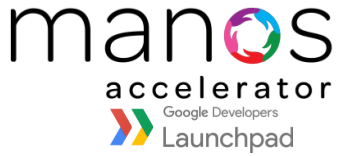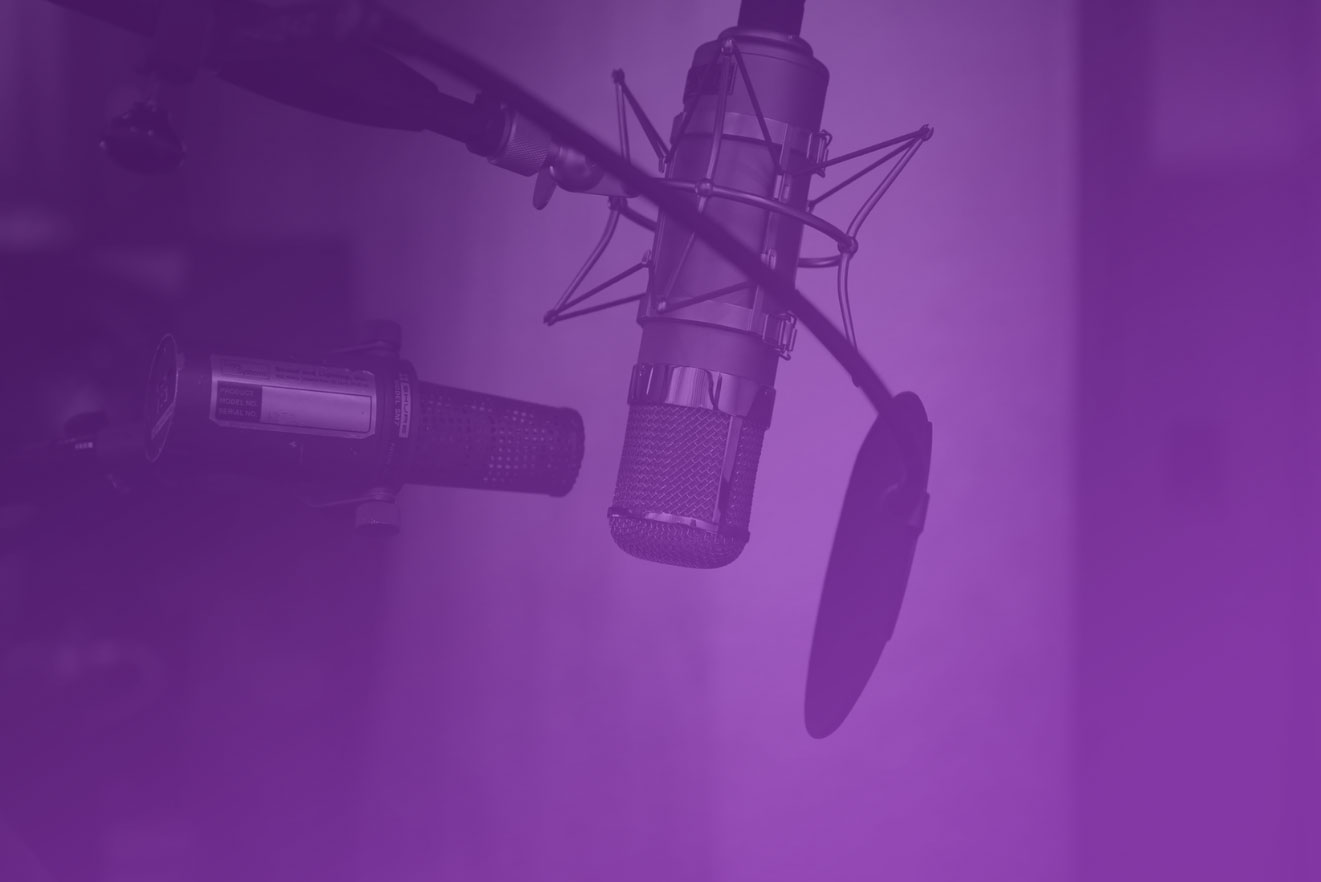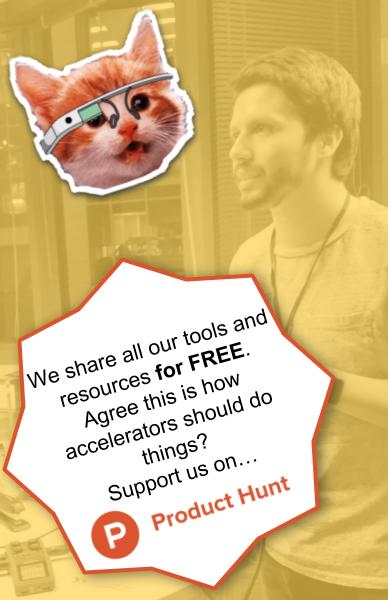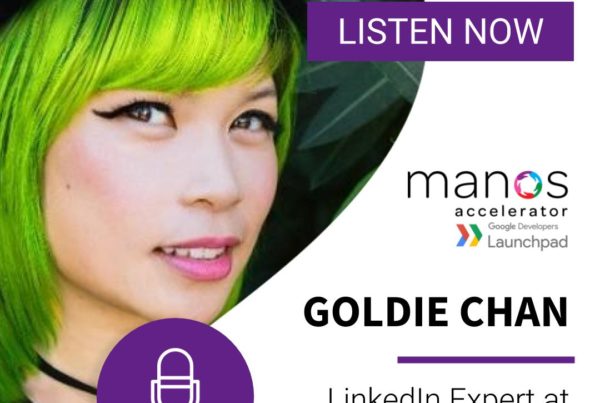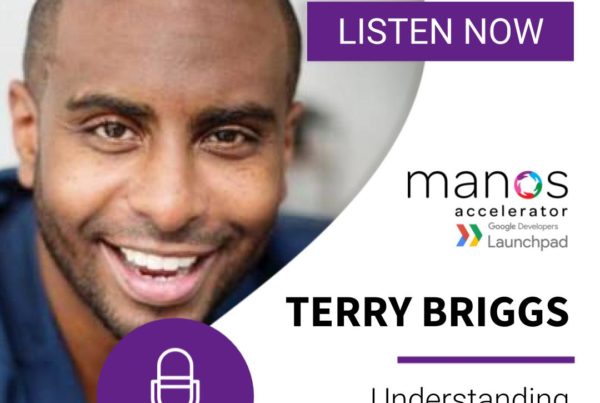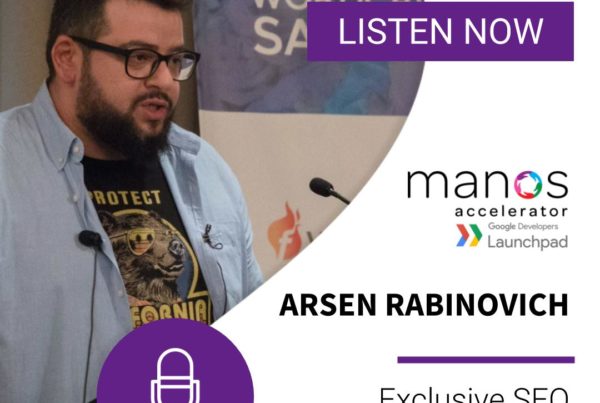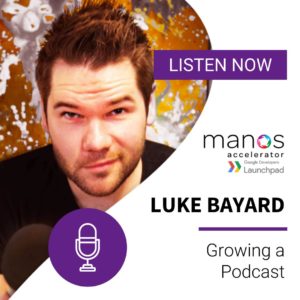 Luke serves as Host of the Cult of Startup Podcast, where he’s interviewed Forbes 30 Under 30 founders among many other top performers on the topics of success, mindset, and entrepreneurship. His episodes average thousands of downloads while he grows a tech and marketing agency servicing businesses in the Western niche.
Luke serves as Host of the Cult of Startup Podcast, where he’s interviewed Forbes 30 Under 30 founders among many other top performers on the topics of success, mindset, and entrepreneurship. His episodes average thousands of downloads while he grows a tech and marketing agency servicing businesses in the Western niche.
Thinking about launching a podcast? This one is for you.
SUBSCRIBE
Show Notes
Hello and welcome to another episode of the Manos accelerator podcast. This is the stacking growth special and today I am with Luke Bayard. And what are you working on Luke?
Luke: 00:58 So currently I’m the founder of a company called Spark Solutions. We do website mobile, APP development, and a lot of social media marketing for fashion brands within specifically the western fashion space such as cowgirl cowboy stuff. And also I am the host of the startup Podcast.
Juan 01:13 That is amazing. Uh, tell us a little bit about your company’s or your podcast or your company in terms of either revenue or customer base or like some cool clients you’ve worked with to get us a little bit of context about how far along the journey you are.
Luke: 01:27 Certainly. So this last year we’ve doubled in size. I have three or four people that worked for me, outsourced and this I’m probably hoping to triple or quadruple in size given the intake of people who are gaining interest in my company and the stuff that we’re doing, especially within this western fashion space, there really doesn’t seem to be anybody going after it but has like a silicon valley approach.
Luke: 01:44 But I myself was an ag business major in college so I have a lot of friends and family in this space. So I think there’s a certain level of relationship to. It’s not like I graduated from Stanford and a degree in computer science. It’s like I went to an agricultural school and I actually happen to have sort of the jobs from silicon valley to do the stuff. In addition to that at the podcast, which is more of a passion project of mine in a way to build a network as well as sort of clout around other people, so it’s, hey, I know you for my podcast, I can talk to you about growth hacking. You’re somebody I can relate to or talk about that. A podcast is roughly around 5,000 downloads per episode right now, so it’s not huge, but I definitely have a loyal audience on it and something that in 2018 I really want to get up to over 20,000 downloads per episode.
Luke: 02:25 I think it’s doable given the things that I’m learning here and just my experience, but need to find the time to double down on it, but I would say anybody wants to sort of podcasts. There is nothing more valuable than sitting down with somebody and picking their brain about a subject you love.
Juan: 02:39 Oh wow, and that’s exactly what we’re going to do here. Luke, tell us a little bit about the importance of building a podcast. You can get from it so that our listeners that are in Latin America and they’re thinking, is this for me? You can say, well, this is what you can expect to get out of it, and then let’s dive into once once we’re already sold and we want to do a podcast, how do we actually start getting traction to that podcast?
Luke: 02:59 First and foremost of anything else? Podcasting I viewed as blogging 2.0 , so eight, nine years ago, people, everybody had a blog.
Luke: 03:06 Every business had a blog. It’s going to sort of become that. So you’re gonna start seeing big brands like maybe at Best Buy or Williams Sonoma start having podcasts. It’s just going to be another section of their entire media platform. But also there’s a time right now where these small sort of micro influencers can gain a lot of real estate early on and build a brand before you start seeing everybody else jump in and I guarantee you probably one to two years from now, that’s going to be a lot harder to really break that space. Um, I would say ask, ask yourself, what blogs do you currently read? It’s probably far and few between you’re listening to more podcasts, so already the nature and behavior of an individual is changing to listening to that, so divide and conquer within that category. Number two, talking about getting your podcast out there and getting guests, ect.
Luke: 03:48 Make sure anytime that you interview somebody you try to get on their email list and whatever social media platform that they can deploy it on, no matter what, and I’ve struggled with this personally and trying to get it done right and try and different copy, ect. The best way to do it is think of it, make it stupid proof for your guests to deploy it, so anything that they would have to write, produce, ect, do it yourself and then hand it to them so they literally just go copy, paste, deploy, done. You give them the link that they should share, it’s tracked, ect. Saves you a lot of time and a lot of heartache because at the very beginning I just kind of said, hey, podcast is out. Can you share it and have like a one to five share rate right now it’s like three out of five, four out of five and the one that doesn’t share it, it’s just they’re lazy or they maybe they don’t like the content, which I think does happen at times.
Luke: 04:35 Like Ah, the quote that you used I don’t really like, but you know, ask your guests, hey, why don’t you share it, be candid with them. And the third piece about podcasting, which is not necessarily about deployment and growing audience, a podcast is an opportunity to learn. So if there’s a specific subject matter that you want to learn more about, start a podcast about it. People enjoy talking about what they’re good at. Like I, myself, I had two failed startups earlier on. I sold parts of them and then eventually it sort of started this consulting agency, but at like the core of my heart, I really enjoyed podcast and I enjoyed startups. Like that was like who I was. That’s why I got in this committee. That’s why I’m doing what I’m doing today. And I wanted to meet more founders, but I built my network up by having two failed startups.
Luke: 05:21 So I’d always call like my advisors and stuff like that to my first podcast guest say, Hey Michael, will you be my first podcast guest? You know, they’d be like, yeah, of course, no problem. I’d love to be on your show, you know? And I even had one of my biggest advisor, their dad a meeting with one of my clients in him and he’s like, what the hell am I going to be on your show man? So it’s gotten to a point where I’m starting to get. But aside from all that, like it’s an opportunity where I could sit down with someone like you want and be like, hey, tell me about growing your business. And I like to siphon out those stories. And those stories inspire me. And every time I finished a podcast, I would walk away going, wow, I learned so much.
Luke: 05:57 I want to see a selfish thing to some degree because I do have an audience. And I asked them, Hey, what questions would you like me to ask this guest? It’s going to come on, ect, and I do sort of give them a shout out, but overall I kind of am doing it selfishly. I want out of your own curiosity, curiosity. I’m sort of scratching my own itch and I am exposed. I’ve been exposed enough to start ups to kind of know the intricacies of like a funding round and what that means and the legal ramifications of doing certain things, but I try to always go, hey, tell me about the first time you you met with an investor and that play by play that to a listener is so much more valuable than how did you get your first round of funding? It’s the story and that intricate moment that I try to dial into that changes how the interview happens.
Luke: 06:43 It’s all, it’s all about that. My new moment, and hopefully you’ll come across this as, and I don’t divert too much here, but in interviewing people, some people are good storytellers and some aren’t and you’ll eventually realized that I’m like, this person’s done storytelling. At which point you have to improvise and maybe contribute on your own or rework how you’re asking questions, ect. Sure. Hopefully that wasn’t too much of a tangent.
Juan: 07:06 Let’s start getting real tactical on how to actually start getting a lot of downloads to a podcast. So what are some things that you’ve learned that if I start my own podcast and I am starting my own podcast, but yeah, if I’m a listener and I’m starting my own podcast, what are some of the things that you’ve learned that I can do to start getting traction on my own content?
Luke: 07:25 Opposite of everything I did.A easy way to really win right away is released multiple episodes in your first sort of ongo, uh, at least to my knowledge today. Apple’s algorithm favors that. So if you really is four to six episodes right away and you’re getting multiple listens per episode, that will float you up and you really want to get on new and noteworthy. But I’ve also heard that not getting on new and noteworthy doesn’t make or break you. So it’s kind of more like a badge of honor. But what really defines you is how far you go past that. I heard a really interesting statistic is that somewhere around like eighty percent of all podcasts don’t go past episode 10. There’s a huge drop off rate. Huge. So if you think about it like, oh, there’s somewhere north of like in the numbers change all the time, like half a million podcasts, but eighty percent of those didn’t make it past episode seven to 10 or something like.
”Somewhere around like eighty percent of all podcasts don't go past episode 10.
Luke BayardFounder, Cult of Startup Podcast
There's a huge drop off rate. Huge.
So you're still kind of in an elite group if you think about it if you get past that number.
Luke: 08:19 So you’re still kind of in an elite group if you think about if you get past that number. Um, another big thing in launching a podcast is getting reviews. It reviews like crazy. Those are sort of like jet fuel in your rankings as well as other people come in. Your podcasts read reviews. And I actually so far in mine, I have none bad review yet I have all five stars. Nice. So there’s been a good chunk of family and friends and a couple of people intermittently. And I, I slightly wished that I had like one person who gave me a four out of five star just so it seems real. Right, right. So I would say maybe get your first 55 stars from for family and then have one person gives you a four out of five stars and allow it to sort of give you that layer of authenticity that instead of just like, this show is perfect, obviously it’s not.
Luke: 09:05 So be genuine with yourself that you are going to mess up on your content or other things in your question is just about getting started. Um, don’t worry about Mic sets up. I mean you can pay for a decent system. The Orion. Yeah, thousand dollars. But your iphone will be totally fine if you go back, I would encourage you to go back and listen to the first episodes of Lewis Howes or Patflynn and listened to how the, their audio quality. It’s atrocious. It’s terrible. It’s staticky. It’s kind of hard to understand levelings off. So understanding that those people had to come from somewhere. So you can work your way up into being that just like a blogger would, a bloggers first blog doesn’t get a lot of views, eva, momentum and consistency and actually get out there, do it. I, myself, I first started with the terrible intro, wasn’t that clean, the audio wasn’t as balanced as I would like it to be.
Luke: 10:00 There was a little bit of static and about five episodes in I learned, oh, there’s this one tool. I change the static six episodes. There’s seven episodes in. Oh, I learned that I can live without this tool.
Juan: 10:12 Did you know, anything about audio or editing audio or anything like that before getting started?
Luke: 10:17 The closest I had is that I did film in high school and I was really, really into the intricacies and I’m getting the right levels is like if you’re a viewer and a film, you don’t realize how important audio actually is to the end viewer. So that, that sense sort of like, was instilled in my head early on until I could figure it out. But even then I was kinda like, well, let’s go on to itunes. Let’s see, um
Juan: 10:38 What programs we’re using. Yeah, sorry. What programs are you using?because that’s going to be historical and more advice. What programs do you recommend of using?
Luke: 10:45 So, base level I still use it today is Audacity, uh, anything you’d want to learn on, athletic it, OK, one, learn how to cut a clip, learn how to split a track into separate channels and all these things I should have said before, look up on Youtube, there’s tons of youtube tutorials about it. Um, number three, learn about noise cancellation, which is the part that eliminates all of the static from it. Um, and then kind of within that, just basic editing, like being able to drag tracks and line them up, cut out the ums or certain words that you don’t want to have in there. I’ve kind of gotten to a point and I sort of into the princess of that, I’ve heard of this weekend a lot of hours, like just freaking release it, which is probably what I’m going to be doing more often now.
Luke: 11:30 And then the last piece before I forget is running the file through a service called Audio Phonic, which is just an extra extra layer that you can do that balances the entire audio track. And I’ve used that, have like six emails set up on it. Feel like two free hours a month. I didn’t say that, sorry, I, I find this, I’ll pay you some money. It basically my goal was like if somebody is listening to my podcasts, I don’t want them to be in the car, like turning it up and down, and when I figured that out I was like, this is something that I should just do with every podcast I export from audacity, Mp3, upload, audio phonic, and what I do in that intermediate time is I finished my show description in Libsyn, um, and other stories podcast, use Libsyn, super easy. There’s a couple of other podcasting tools out there, but Libsyn sort of a thought leader within the space and they’re making a lot of improvements.
Luke: 12:22 It’s a hosting service, so all podcast aren’t hosted on Itunes, which most people don’t realize you actually hosted on a separate server and deploy to multiple platforms. So I deploy it’s like an RSS feed. Does it get it on soundcloud as well? I don’t think you can put it on soundcloud quite yet because soundcloud is kind of like a separate thing to pay to be on soundcloud
Juan: 12:50 Do you know how many platforms you can deploy to?
Luke: 12:53 The big ones that I’m on, I would say do itunes, stitcher, spotify now allowed on it. And I think there’s one that’s some other like Microsoft word around Microsoft word, Microsoft, one that you can deploy to. OK. If you get those three, like you’re covering what 90 percent of the people all listen to podcast on. I’m also understand a lot of people are downloading the third party apps for podcast. So um, if you can connect to a handful of those people, it’s definitely going to benefit you. I had somebody I’m bummed, I can’t remember the name of it, but it was a podcasting app those up and coming and he’s like, he was like head of content for them and he had followed me on snapchat. He’s like, I’ll give you like a free trail for three days. And I was like, hell yeah. So getting in contact with those kinds of people would be a great way to growth hack your viewership.
Juan: 13:43 OK Manos Nation. Do not forget your chance to win digital goods and resources on every episode right here on the podcast. It’s very simple. You just subscribed to the show on itunes in. Once you’ve done that, message the word “Manos” to m.me/ManosAccelerator. Subscribe on itunes and then message Manos to the website, m.me/ManosAccelerator. See you on the next one.
Juan: 14:10 I love it. You heard it here first. Luke, thank you so much for sharing with us your experience. Luke, growing his own business. Two failed startups, but leapfrogging into a successful business right now with scaling his company from a zero to or from one to four employees now wanting to double, triple, maybe even quadruple his business this year. Um, CEO, producer of cold, of startup, the podcast. What’s the best way to stay in touch with you? Um, you can reach me at cult of startup on literally every single platform. OK, so snapchat, instagram, facebook, ect. But also if you hit me up on Linkedin, that’s where I’m spending most of my time and I’m most likely to respond to you within a short period of time. As I’ve grown my following, I’ve realized the inundation of messages gets a little crazy, so if you do want to get in contact with me, do something creative and I’ll lift him and be like, Oh, what the hell that that girl tried to get in contact with me. All right, I’ll pay attention to you so that would go for anybody who’s looking to get in contact with somebody who feels like they’re just super busy with stuff, or Luke HBO @gmail.com. I usually check that too. Perfect. Thanks for much for. Thanks so much for sharing with us. Excellent. Thank you, man.
Social Media:
- LinkedIn: https://www.linkedin.com/in/lukehbayard/
Key Point:
- There is nothing more valuable than sitting down with somebody and picking their brain about a subject you have.
- A easy way to really win a podcast launch right away is to release multiple episodes at once right at the beginning.
Resources:
- Audacity: A free, easy-to-use, multi-track audio editor and recorder for Windows, Mac OS X, GNU/Linux and other operating systems.
- Audio Phonic: A software that help to analyze the audio to achieve a professional quality.
- Libsyn: A podcast hosting service and publishing platform for managing, distributing and monetizing your content. Fully integrated tools provide a one-stop solution with flexible service level options.

